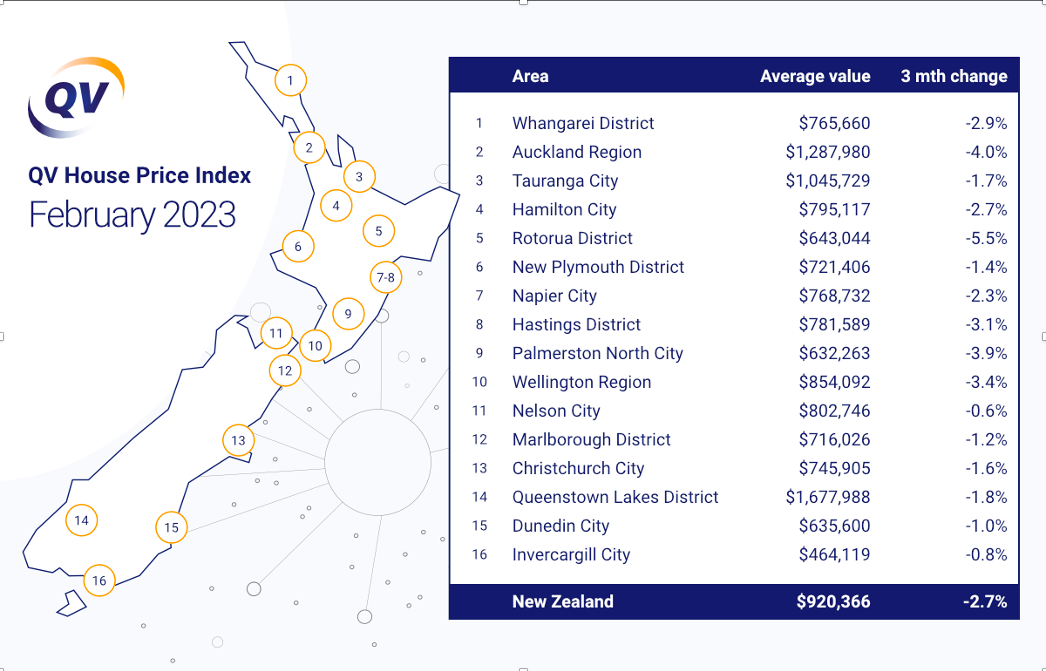Home values are still on average 24.5% higher nationally than they were before the pandemic

New Zealand home values are still on average 24.5% higher than they were when the pandemic first broke out and will need to fall for up to two more years to reach pre-pandemic levels.
This was according to the latest QV House Price Index for February 2023, which reported that the latest home values already dripped 12.6% on average in the last 12 months and fell 2.7% on average this quarter.
“The housing market is still an awfully long way from its pre-COVID-19 levels, even after more than a year of very significant reductions across the motu,” said Simon Petersen (pictured above), QV national spokesperson. “In fact, if residential property values continue to fall at their current rate, it could still take up to two more years to hit their pre-pandemic level nationally. That’s a pretty big ‘if’, with the market expected to stabilise before then.”
Among the main urban centres, Wellington has been the hardest hit by the current downturn. The average home value across the wider region has dropped by 21% since February 2022 to $854,092 at the end of February 2023. That’s still $109,609 or 14.7% higher than when the pandemic began.
“Home values remain more than $100,000 higher across the Wellington region than they were three years ago,” Petersen said. “In Christchurch and Auckland, the pre-pandemic difference in dollar terms is still upwards of $200,000. So, clearly there’s still some way to go if the residential property market’s correction continues unabated. That remains to be seen in the longer term, but the Reserve Bank’s latest increase to the official cash rate will almost certainly see it maintain its current downward trajectory for the time being.”
In the three months to the end of February, Rotorua (-5.5%) posted the largest home value reductions across the main urban centres. This was followed by Auckland (-4%) and Palmerston North (-3.9%). These three all posted larger reductions compared to the previous set of QV figures.
Also making it to the top five were Wellington (-3.4%) and Hastings (-3.1%), with property values in the South Island holding up much better on average than those in the north. Nelson (-0.6%) and Invercargill (-0.8%) saw the smallest home value reductions on average this quarter.
“Rising interest rates and credit constraints continue to have a tight strangle-hold on the market currently, as they have had for more than a year now,” Petersen said. “Many prospective home buyers are either unable or unwilling to purchase property right now while the cost of servicing a home loan is so high. Others are waiting to see when the market will bottom out, which obviously hasn’t happened yet.”

Have a thought about this story? Include it in the comments below.



